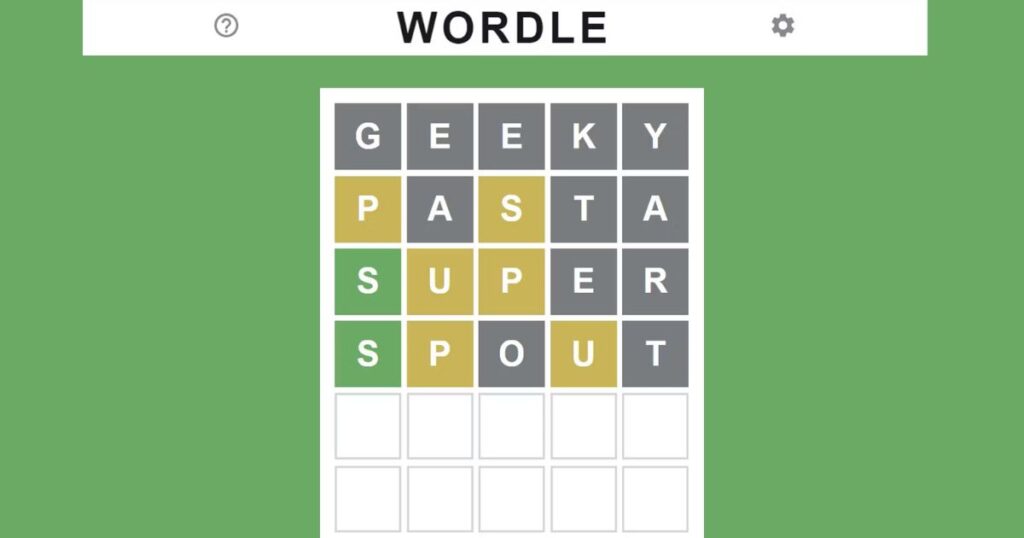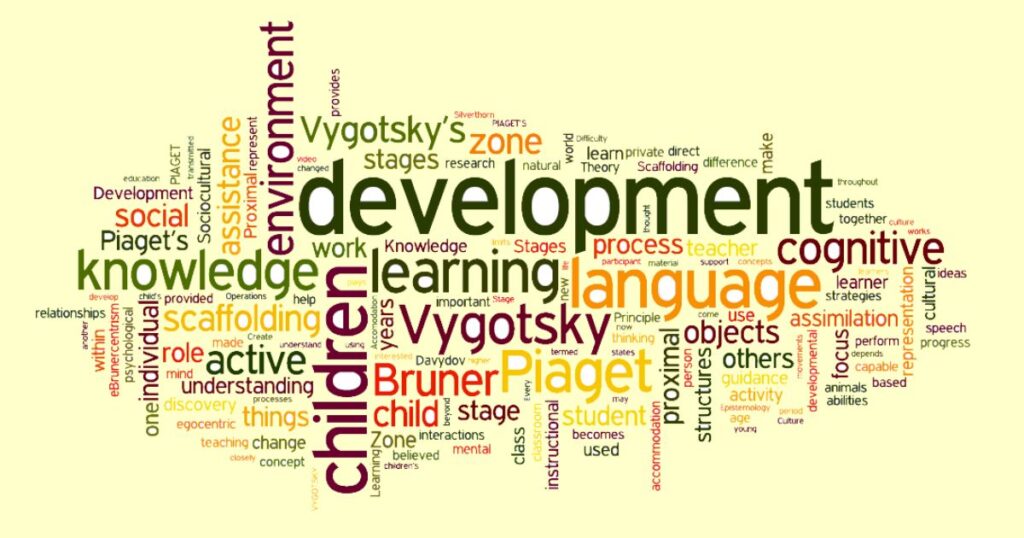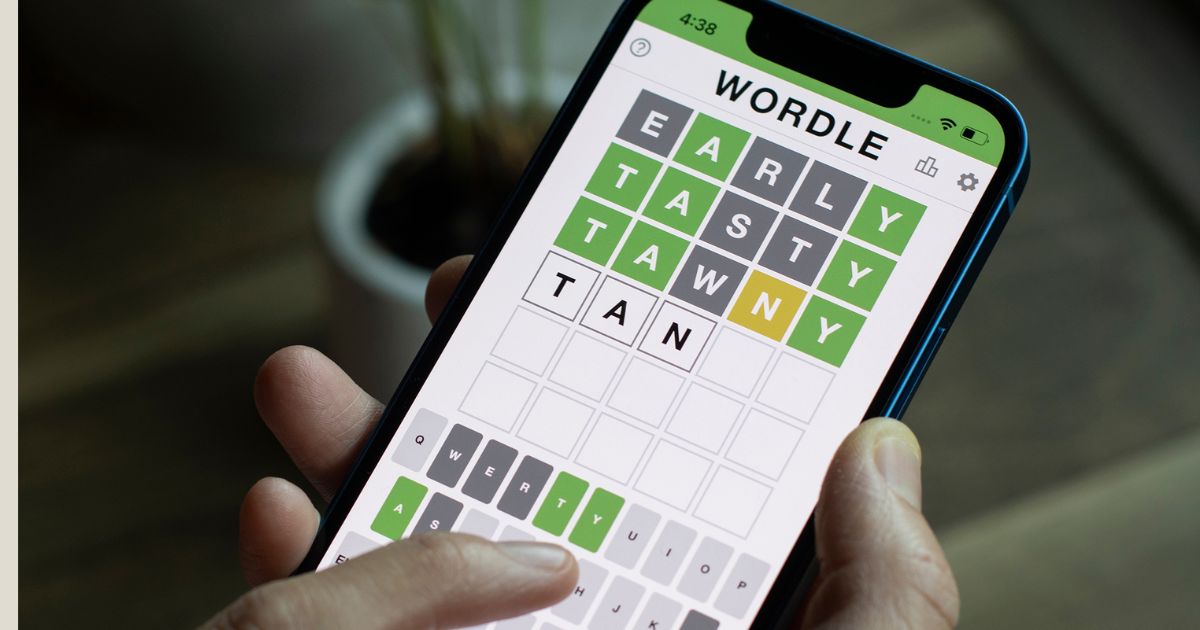Are you ready to become a Wordle Newsweek master? This addictive word puzzle game has taken the world by storm, captivating players of all ages with its simple yet challenging gameplay.
In this ultimate guide, we’ll dive deep into the world of Wordle Newsweek, exploring its rules, strategies, variations, and the cognitive benefits it offers. Whether you’re a seasoned solver or a newcomer to the game, you’ll find invaluable tips and tricks to help you solve those tricky puzzles with ease.
So, grab your thinking cap and let’s embark on a journey to Wordle Newsweek mastery!
How to Play Wordle Newsweek
Before we delve into the intricacies of Wordle Newsweek, let’s cover the basics of how to play this word guessing game. The rules are simple: you have six attempts to guess a five-letter word chosen by the game. With each guess, the game provides feedback in the form of colored tiles. If a letter turns green, it means you’ve guessed a correct letter in the right position. A yellow tile indicates that the letter is part of the word but in the wrong spot, while gray tiles signify incorrect letters.
Your objective is to use this feedback to strategically narrow down the possibilities until you crack the code and reveal the hidden word. It’s a game of logic, deduction, and expanding your vocabulary – a perfect blend of fun and mental stimulation.
Tips and Strategies for Solving Wordle Newsweek Puzzles
As with any challenging puzzle, having a solid strategy can make all the difference in your Wordle Newsweek gameplay. Here are some tips and tricks to help you solve those puzzles like a pro:
- Start with Common Vowels: Begin your guessing process by including common vowels like “A,” “E,” “O,” or “I” in your first word. Since every English word contains at least one vowel, this approach can provide valuable clues about the word’s structure.
- Look for Letter Patterns: Pay close attention to the feedback you receive after each guess. Analyze the positions of the green and yellow tiles to identify patterns and letter combinations that can guide your subsequent guesses.
- Experiment with Word Lengths: Don’t be afraid to try words of different lengths, especially shorter ones. Sometimes, a four-letter word can provide the breakthrough you need to solve the puzzle.
- Utilize Word Families: If you’ve identified a few letters in the correct positions, consider exploring words that belong to the same family or have similar roots. This can increase your chances of stumbling upon the solution.
- Stay Flexible: While it’s tempting to fixate on a particular word, remember to keep an open mind. If your guesses aren’t yielding the desired results, be willing to pivot and explore new possibilities.
Common Mistakes and How to Avoid Them
Even the most seasoned Wordle Newsweek players can fall into common pitfalls that hinder their progress. Here are some mistakes to watch out for and tips on how to avoid them:
- Ignoring Vowel Placement: One of the most common mistakes is overlooking the importance of vowel placement. Pay close attention to the positions of the yellow vowel tiles, as they can provide crucial clues for your next guesses.
- Fixating on a Single Word: While it’s natural to have a hunch about a particular word, don’t get too attached to it. If your guesses aren’t aligning with the feedback, be open to exploring new possibilities.
- Rushing Through Guesses: Wordle Newsweek is a game of patience and strategy. Rushing through your guesses without carefully analyzing the feedback can lead to costly mistakes and missed opportunities.
- Neglecting Word Patterns: As you progress through the game, be on the lookout for patterns in the letter combinations and word structures. Failing to recognize these patterns can make it harder to solve the puzzle.
- Overlooking Shorter Words: Don’t discount the possibility of shorter words being the solution. Sometimes, the simplest answer is the correct one, so always keep an open mind.
Wordle Newsweek Variations and Challenges

While the classic Wordle Newsweek puzzle is a joy in itself, some players crave additional challenges and variations to keep the game fresh and exciting. Fortunately, the world of Wordle Newsweek is vast and ever-expanding, offering a plethora of twists and variations to explore.
- Themed Wordle Newsweek: From movie-inspired puzzles to subject-specific challenges, themed Wordle Newsweek games add an extra layer of complexity and fun. These variations can test your knowledge of a particular topic while still challenging your word-solving skills.
- Timed Challenges: For those seeking an adrenaline rush, timed Wordle Newsweek challenges put your speed and quick-thinking abilities to the test. Race against the clock to solve the puzzle before time runs out!
- Multiplayer Wordle Newsweek: Bring a competitive edge to the game by playing Wordle Newsweek with friends or family members. Collaborate, strategize, and see who can crack the code the fastest in these multiplayer variations.
- Custom Wordle Newsweek Puzzles: Get creative and design your own Wordle Newsweek puzzles! Whether you want to challenge your loved ones with inside jokes or create puzzles based on personal experiences, the possibilities are endless.
The Benefits of Playing Wordle Newsweek
While Wordle Newsweek is undoubtedly a fun and addictive game, it also offers numerous cognitive and mental benefits that make it a worthwhile pursuit. Here are just a few advantages of playing Wordle Newsweek regularly:
- Vocabulary Expansion: By exposing you to new words and letter combinations, Wordle Newsweek can help expand your vocabulary and improve your command of the English language.
- Problem-Solving Skills: Each Wordle Newsweek puzzle is a unique problem-solving challenge that requires logical thinking, deduction, and analytical skills to solve.
- Stress Relief: Playing Wordle Newsweek can serve as a mental break from the stresses of daily life, providing a fun and engaging distraction that exercises your brain in a relaxing way.
- Cognitive Stimulation: Engaging in word puzzles like Wordle Newsweek has been shown to stimulate various cognitive functions, including memory, attention, and reasoning abilities.
- Social Connection: Sharing your Wordle Newsweek experiences and strategies with friends and family can foster social connections and create a sense of community around the game.
Resources for Improving Your Wordle Newsweek Skills
As you continue your Wordle Newsweek journey, you may find yourself seeking additional resources and communities to help you improve your skills and stay engaged with the game. Fortunately, the Wordle Newsweek community is thriving, and there are plenty of resources at your disposal:
- Online Forums and Communities: Join online forums and discussion groups dedicated to Wordle Newsweek. Here, you can connect with fellow enthusiasts, share strategies, and learn from experienced players.
- Wordle Newsweek Websites and Apps: Explore websites and mobile apps that offer daily Wordle Newsweek challenges, practice puzzles, and helpful tips and tricks to enhance your gameplay.
- Social Media Groups: Follow Wordle Newsweek-related hashtags and join social media groups where players share their experiences, discuss solutions, and engage in friendly competitions.
- Wordle Newsweek Tutorials and Guides: Take advantage of online tutorials, guides, and video resources created by experienced Wordle Newsweek players to learn advanced strategies and techniques.
- Word Game Blogs and Podcasts: Broaden your knowledge by following blogs and podcasts dedicated to word games, puzzles, and language-related topics, as they often cover Wordle Newsweek and provide valuable insights.
What is Wordle, and why is it so popular?
Wordle Newsweek is a simple yet brilliantly designed word puzzle game that has taken the world by storm. Its rise to popularity can be attributed to several factors, including its accessibility, addictive gameplay, and social elements.
At its core, Wordle Newsweek is a daily word guessing game where players have six attempts to correctly identify a five-letter word. With each guess, the game provides feedback in the form of colored tiles, guiding players towards the solution. It’s a deceptively simple concept that hooks players from the very first puzzle.
One of the reasons for Wordle Newsweek’s widespread appeal is its accessibility. The game is free to play, web-based, and requires no downloads or complicated setup. This low barrier to entry has allowed people of all ages and backgrounds to enjoy the game.
Read Also: Decoding Today’s Wordle Hint Newsweek
The rules and objectives of the game
While the concept of Wordle Newsweek is straightforward, understanding the rules and objectives is crucial for mastering the game. At its core, Wordle Newsweek presents you with a single five-letter word puzzle each day, and your goal is to guess the word correctly within six attempts.
When you make a guess, the game provides feedback in the form of colored tiles. If a letter in your guess turns green, it means that the letter is in the correct position within the word. Yellow tiles indicate that the letter is part of the word but in the wrong position, while gray tiles signify that the letter is not present in the word at all.
With each subsequent guess, you must use the clues provided by the colored tiles to narrow down the possibilities and strategically rearrange the letters until you successfully crack the code and reveal the hidden word.
The game’s simplicity belies its addictive nature, as players find themselves compelled to exercise their logical reasoning and vocabulary skills to solve the daily puzzle. The sense of accomplishment that comes with correctly guessing the word within the allotted six attempts is incredibly satisfying, fueling the desire to take on the next challenge.
Tips for solving Wordle puzzles

While Wordle Newsweek may seem straightforward at first glance, mastering the art of solving these word puzzles efficiently requires a combination of strategy, vocabulary knowledge, and a keen eye for patterns. Here are some tips to help you improve your Wordle Newsweek skills:
- Start with Common Letter Combinations: Begin your guessing process by using words that contain common letter combinations, such as “CRANE” or “SLATE.” This approach can provide valuable feedback on which letters are present in the word and their respective positions.
- Utilize Vowel Placement: Pay close attention to the placement of vowels in your guesses. Since most words contain at least one vowel, identifying the correct vowel positions can significantly narrow down the possibilities.
- Look for Word Patterns: As you progress through the game, keep an eye out for patterns in the feedback you receive. For example, if you notice that certain letters consistently appear in the same positions, it could be an indication of a specific word structure or root.
- Leverage Word Families: If you’ve identified a few letters in the correct positions, consider exploring words that belong to the same family or have similar roots. This strategy can increase your chances of stumbling upon the solution.
- Stay Flexible: While it’s tempting to fixate on a particular word once you’ve invested a few guesses, it’s important to remain flexible and open to new possibilities. Be willing to pivot your strategy if your current approach isn’t yielding the desired results.
Remember, practice makes perfect. The more Wordle Newsweek puzzles you solve, the better you’ll become at recognizing patterns, expanding your vocabulary, and honing your deductive reasoning skills.
The psychology behind playing Wordle
The widespread popularity of Wordle Newsweek extends beyond its simple gameplay mechanics. The game taps into various psychological factors that contribute to its addictive nature and lasting appeal. Understanding these psychological elements can provide insight into why Wordle Newsweek has captured the hearts and minds of millions worldwide.
One psychological aspect that makes Wordle Newsweek so captivating is its ability to trigger a sense of accomplishment and satisfaction. As players progress through the game, correctly identifying letters and positions releases a small dopamine rush, reinforcing the desire to continue playing and experience that rewarding feeling again.
Additionally, the game’s inherent simplicity and low barrier to entry create a sense of accessibility that appeals to a broad range of players. The straightforward rules and intuitive gameplay allow individuals of various ages and backgrounds to engage with the puzzles, fostering a sense of inclusivity and community around the game.
Moreover, Wordle Newsweek taps into our innate desire for problem-solving and pattern recognition. The process of deducing the correct word based on limited information stimulates our cognitive abilities, providing a sense of mental challenge and engagement that keeps players hooked.
By understanding the psychological factors at play, it becomes clear why Wordle Newsweek has captivated millions of players worldwide, transcending its simple premise and becoming a cultural phenomenon.
Strategies for improving your Wordle skills
While Wordle Newsweek is a game that relies heavily on vocabulary knowledge and logical reasoning, there are strategies and techniques that can help you improve your skills and increase your chances of solving the puzzles more efficiently. Here are some proven strategies to incorporate into your Wordle Newsweek gameplay:
- Develop a Starting Word Strategy: Many experienced Wordle Newsweek players have a go-to starting word that they use for every puzzle. This word is typically chosen strategically to include common vowels and consonants, providing valuable feedback from the first guess. Popular starting words include “SOARE,” “CRANE,” and “SLATE.”
- Eliminate Possibilities Systematically: As you progress through the game, keep track of the letters you’ve already used and their respective positions. Eliminate those letters and positions from your subsequent guesses, narrowing down the pool of possible solutions.
- Prioritize High-Value Consonants: Certain consonants, such as “R,” “S,” “T,” “L,” and “N,” are more commonly found in English words compared to others. Prioritize guessing words that include these high-value consonants to increase your chances of success.
- Incorporate Word Families: If you’ve identified a few letters in the correct positions, explore words that belong to the same family or have similar roots. For example, if you’ve discovered that the word contains “BI,” you could try guessing words like “BIOME,” “BIBLE,” or “BINGE.”
- Practice with Themed Word Lists: To expand your vocabulary and improve your pattern recognition skills, practice solving Wordle Newsweek puzzles using themed word lists. These lists can focus on specific categories, such as animals, food, or geographical locations, challenging you to think outside the box.
Remember, consistency and practice are key to improving your Wordle Newsweek skills. Incorporate these strategies into your gameplay, and you’ll soon find yourself solving puzzles with greater ease and efficiency.
How to create your own custom Wordle puzzles
One of the most exciting aspects of Wordle Newsweek is the ability to create your own custom puzzles. Whether you want to challenge your friends and family with personalized word games or simply explore your creativity, designing custom Wordle Newsweek puzzles is a fun and engaging activity. Here’s how you can get started:
- Choose a Word: The first step is to select a five-letter word that will serve as the solution to your custom Wordle Newsweek puzzle. You can choose a word that holds special meaning, an inside joke, or simply a word that you find interesting or challenging.
- Utilize Online Wordle Puzzle Generators: There are various online tools and websites specifically designed for creating custom Wordle Newsweek puzzles. These platforms allow you to input your chosen word and generate a unique puzzle grid with the corresponding feedback system.
- Set Parameters and Rules: Some Wordle Newsweek puzzle generators offer additional customization options, such as adjusting the number of allowed guesses or incorporating bonus points for longer words. Explore these settings to tailor the puzzle to your desired level of difficulty.
- Incorporate Themes: To add an extra layer of fun and challenge, consider creating themed Wordle Newsweek puzzles. For example, you could design a puzzle based on a favorite book, movie, or a specific topic of interest.
- Share and Challenge Others: Once you’ve created your custom Wordle Newsweek puzzle, share it with friends, family, or online communities. Engage in friendly competitions and see who can crack your personalized code the fastest.
By creating your own custom Wordle Newsweek puzzles, you not only exercise your creativity but also gain a deeper appreciation for the thought process and strategy involved in solving these word puzzles. It’s a great way to keep the Wordle Newsweek fun going and challenge yourself and others in new and exciting ways.
The Benefits of Playing Wordle for Cognitive Development

While Wordle Newsweek is an incredibly fun and addictive game, it also offers numerous cognitive benefits that can contribute to overall brain health and development. Here are some ways in which playing Wordle Newsweek can boost your cognitive abilities:
- Vocabulary Expansion: With each new puzzle, players are exposed to a diverse range of words, encouraging them to expand their vocabulary and learn new terms. This constant exposure to new words can improve language skills and enhance communication abilities.
- Problem-Solving Skills: Solving Wordle Newsweek puzzles requires logical thinking, deduction, and problem-solving skills. The process of analyzing clues, eliminating possibilities, and making strategic guesses exercises these cognitive abilities, leading to improved problem-solving capabilities in various aspects of life.
- Memory and Attention: To successfully solve Wordle Newsweek puzzles, players must remember previously used letters, their positions, and the feedback provided by the game. This constant engagement of memory and attention skills can help improve overall cognitive function and focus.
- Spatial Reasoning: Wordle Newsweek requires players to visualize the placement of letters and patterns within the word grid. This spatial reasoning ability is essential for solving puzzles and can transfer to other areas that involve mental manipulation of objects or spatial awareness.
- Stress Relief and Mindfulness: In addition to cognitive benefits, playing Wordle Newsweek can serve as a form of stress relief and mindfulness practice. The game’s simple yet engaging nature can provide a mental break from daily stressors, allowing players to focus on the present moment and exercise their minds in a relaxing way.
By incorporating Wordle Newsweek into your daily routine, you can enjoy a fun and entertaining activity while simultaneously exercising and developing various cognitive skills that contribute to overall brain health and function.
Common Mistakes to Avoid While Playing Wordle
While Wordle Newsweek may seem straightforward, there are several common mistakes that players often make, which can hinder their progress and reduce their chances of solving the puzzles efficiently. Here are some pitfalls to be aware of and avoid:
- Neglecting Vowel Placement: One of the most common mistakes players make is overlooking the importance of vowel placement. Failing to pay close attention to the positions of vowels in previous guesses can lead to wasted attempts and missed opportunities.
- Fixating on a Single Word: It’s easy to become attached to a particular word once you’ve invested a few guesses into it. However, fixating on a single word and ignoring feedback from the game can prevent you from exploring other possibilities and ultimately solving the puzzle.
- Rushing Through Guesses: Wordle Newsweek is a game that requires patience and careful consideration. Rushing through guesses without properly analyzing the feedback and patterns can lead to costly mistakes and missed opportunities.
- Overlooking Word Patterns: As you progress through the game, it’s essential to be on the lookout for patterns in the feedback you receive. Failing to recognize patterns in letter combinations or word structures can make it more difficult to narrow down the solution.
- Ignoring Shorter Words: Some players make the mistake of dismissing shorter words as potential solutions, assuming that the answer must be a longer, more complex word. However, it’s important to keep an open mind and consider words of all lengths.
By being aware of these common mistakes and actively working to avoid them, you can improve your Wordle Newsweek skills and increase your chances of solving puzzles more efficiently and enjoyably.
Read Also: Today’s ‘Wordle’ #972 Clues and Answer for Friday …
Resources for Finding New and Challenging Wordle Puzzles
While the daily Wordle Newsweek puzzle offers a consistent challenge, some players may find themselves craving additional puzzles or variations to keep their skills sharp. Fortunately, there are numerous resources available for finding new and challenging Wordle Newsweek puzzles:
- Online Wordle Communities: Several online communities and forums dedicated to Wordle Newsweek have emerged, where players can share custom-made puzzles, discuss strategies, and engage in friendly competitions. These communities are treasure troves of user-generated content, ensuring a constant supply of fresh challenges.
- Wordle Websites and Apps: Various websites and mobile applications offer daily Wordle Newsweek challenges, practice puzzles, and additional game modes. These platforms often feature themed puzzles, timed challenges, and leaderboards to add an extra layer of excitement.
- Social Media Hashtags: Following Wordle Newsweek-related hashtags on social media platforms like Twitter and Instagram can lead you to a wealth of user-shared puzzles and challenges. Engage with fellow enthusiasts, share your own creations, and discover new and unique Wordle Newsweek variations.
- Word Game Blogs and Podcasts: Many blogs and podcasts dedicated to word games and puzzles frequently feature Wordle Newsweek content, including custom puzzles, strategy discussions, and interviews with expert solvers. Subscribing to these resources can provide a steady stream of new challenges and insights.
- Collaboration with Friends and Family: One of the most enjoyable ways to find new Wordle Newsweek puzzles is to collaborate with friends and family members. Create custom puzzles for each other, incorporating inside jokes, shared experiences, or specific themes that add a personal touch to the challenge.
By exploring these diverse resources, you can ensure that your Wordle Newsweek journey remains fresh, exciting, and constantly challenging, allowing you to continuously hone your skills and deepen your love for this addictive word puzzle game.
Resources for Finding New and Challenging Wordle Puzzles
While the daily Wordle Newsweek puzzle offers a consistent challenge, some players may find themselves craving additional puzzles or variations to keep their skills sharp. Fortunately, there are numerous resources available for finding new and challenging Wordle Newsweek puzzles:
- Online Wordle Communities: Several online communities and forums dedicated to Wordle Newsweek have emerged, where players can share custom-made puzzles, discuss strategies, and engage in friendly competitions. These communities are treasure troves of user-generated content, ensuring a constant supply of fresh challenges.
- Wordle Websites and Apps: Various websites and mobile applications offer daily Wordle Newsweek challenges, practice puzzles, and additional game modes. These platforms often feature themed puzzles, timed challenges, and leaderboards to add an extra layer of excitement.
- Social Media Hashtags: Following Wordle Newsweek-related hashtags on social media platforms like Twitter and Instagram can lead you to a wealth of user-shared puzzles and challenges. Engage with fellow enthusiasts, share your own creations, and discover new and unique Wordle Newsweek variations.
- Word Game Blogs and Podcasts: Many blogs and podcasts dedicated to word games and puzzles frequently feature Wordle Newsweek content, including custom puzzles, strategy discussions, and interviews with expert solvers. Subscribing to these resources can provide a steady stream of new challenges and insights.
- Collaboration with Friends and Family: One of the most enjoyable ways to find new Wordle Newsweek puzzles is to collaborate with friends and family members. Create custom puzzles for each other, incorporating inside jokes, shared experiences, or specific themes that add a personal touch to the challenge.
By exploring these diverse resources, you can ensure that your Wordle Newsweek journey remains fresh, exciting, and constantly challenging, allowing you to continuously hone your skills and deepen your love for this addictive word puzzle game.
Wordle Newsweek’s Impact on Language Learning and Education

Beyond its entertainment value, Wordle Newsweek has also become a valuable tool for language learning and education. The game’s simplicity and accessibility have made it an effective way to foster vocabulary development, improve spelling skills, and enhance critical thinking abilities. Here’s how Wordle Newsweek is making an impact in the realm of language learning and education:
- Vocabulary Building: Wordle Newsweek exposes players to a wide range of words, encouraging them to expand their vocabulary and learn new terms. As players encounter unfamiliar words while solving puzzles, they are motivated to research their meanings and incorporate them into their lexicon.
- Spelling Practice: The game’s focus on correctly guessing five-letter words provides an engaging way for students to practice their spelling skills. By analyzing feedback and letter patterns, players develop a better understanding of word structures and improve their overall spelling abilities.
- Critical Thinking and Problem-Solving: Solving Wordle Newsweek puzzles requires logical reasoning, deduction, and problem-solving skills. These cognitive processes are essential for academic success and can be effectively practiced through the game, benefiting students across various subjects and disciplines.
- Gamification of Learning: Wordle Newsweek’s addictive and engaging nature makes it an ideal tool for gamifying language learning and education. By incorporating the game into classroom activities or assignments, educators can create a fun and interactive learning environment that motivates students and fosters a love for learning.
- Accessibility and Inclusivity: Wordle Newsweek’s web-based platform and simple interface make it accessible to a wide range of learners, regardless of their age, background, or technological proficiency. This inclusivity allows educators to leverage the game as a valuable educational resource for diverse student populations.
As educators and language learning professionals continue to explore the potential of Wordle Newsweek, its impact on vocabulary development, spelling skills, and critical thinking is likely to grow, making it a valuable addition to the educational toolkit.
Wordle Newsweek’s Social and Cultural Impact
Beyond its educational and cognitive benefits, Wordle Newsweek has also made a significant social and cultural impact, bringing people together and fostering a sense of community around a shared love for word puzzles. Here are some ways in which Wordle Newsweek has influenced society and culture:
- Social Connection: Wordle Newsweek has become a social phenomenon, with players sharing their daily results, strategies, and experiences on various social media platforms. This shared experience has created a sense of community and camaraderie among players, fostering connections and friendly rivalries.
- Intergenerational Bonding: The game’s simplicity and accessibility have made it appealing to players of all ages, from young children to older adults. This intergenerational appeal has facilitated bonding between family members and helped bridge generational gaps through a shared love for Wordle Newsweek.
- Workplace Engagement: Wordle Newsweek has found its way into many workplaces, with colleagues sharing their daily results and engaging in friendly competitions. This shared activity can boost morale, foster teamwork, and provide a welcome mental break from work-related tasks.
- Cultural Representation: As the game’s popularity has grown, players and content creators have begun incorporating cultural elements and diverse perspectives into custom Wordle Newsweek puzzles.
Read More:
Totally Science GitLab: A Revolution in Scientific Collaboration
What Is QXEFV? Latest 2024 Guide
FAQ’s
What is the game that you can play multiple times on Wordle?
Wordle is a daily word puzzle game, meaning you can play a new puzzle every day, but cannot replay previous ones.
How do you solve the Wordle game?
To solve Wordle, make guesses for the five-letter word. Correct letters turn green if in the right spot, or yellow if in the wrong spot. Use logic and word knowledge to narrow down possibilities over six guesses.
Can you play Wordle for free?
Yes, Wordle is completely free to play on its official website.
How do you play the word game?
In Wordle, you enter a five-letter word guess. The game will reveal which letters are correct, incorrect, or misplaced. Use this feedback to make new guesses until you solve the daily word puzzle within six tries.
Final Words
Wordle Newsweek has taken the world by storm with its addictive word puzzle gameplay. This ultimate guide explores the game’s rules, strategies, variations, and cognitive benefits. From mastering vowel placement to recognizing word patterns, it offers invaluable tips for solving puzzles efficiently.
The article delves into the psychology behind Wordle’s appeal, its social and cultural impact, and its applications in education and mental well-being. It highlights resources for finding new challenges, competitive play opportunities, and the game’s role in bridging the digital divide.
Whether you’re a seasoned solver or a newcomer, this comprehensive guide provides engaging insights and practical advice to help you embark on a journey to Wordle mastery.

With a robust five-year background in the ever-evolving realm of tech gadgets, I bring a wealth of hands-on experience and a deep understanding of the latest technological advancements.











